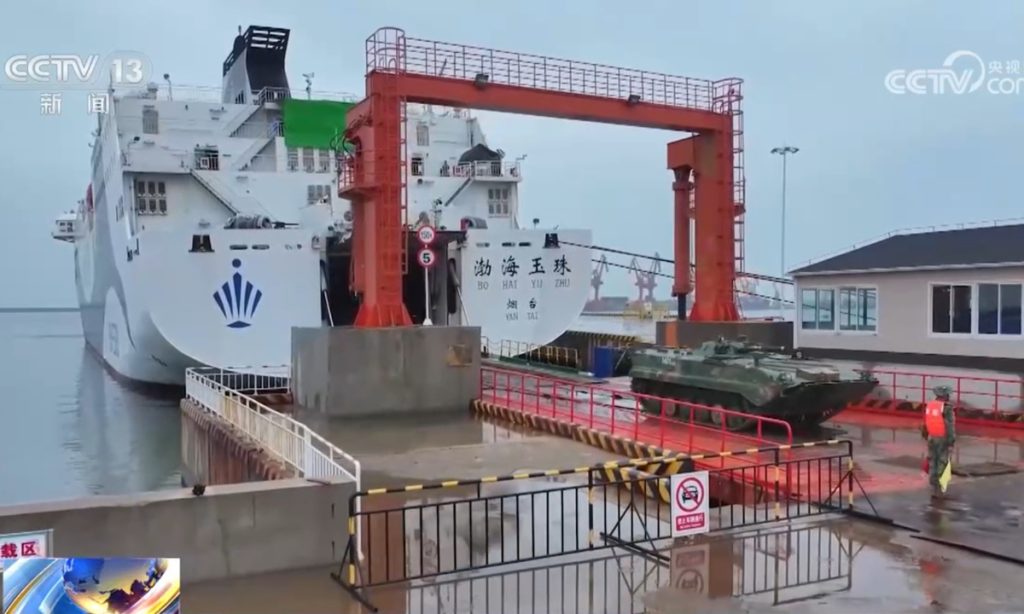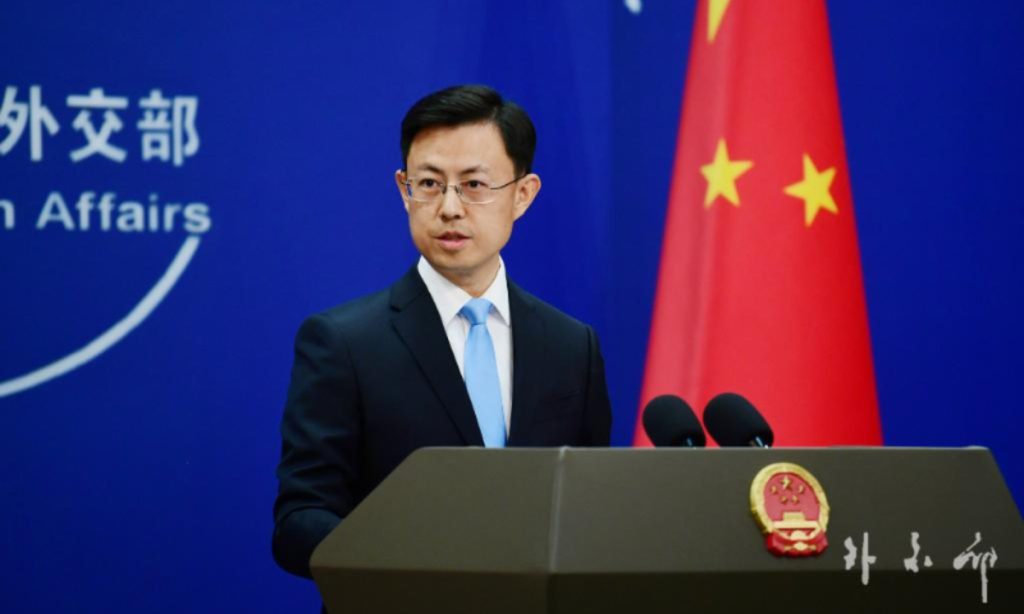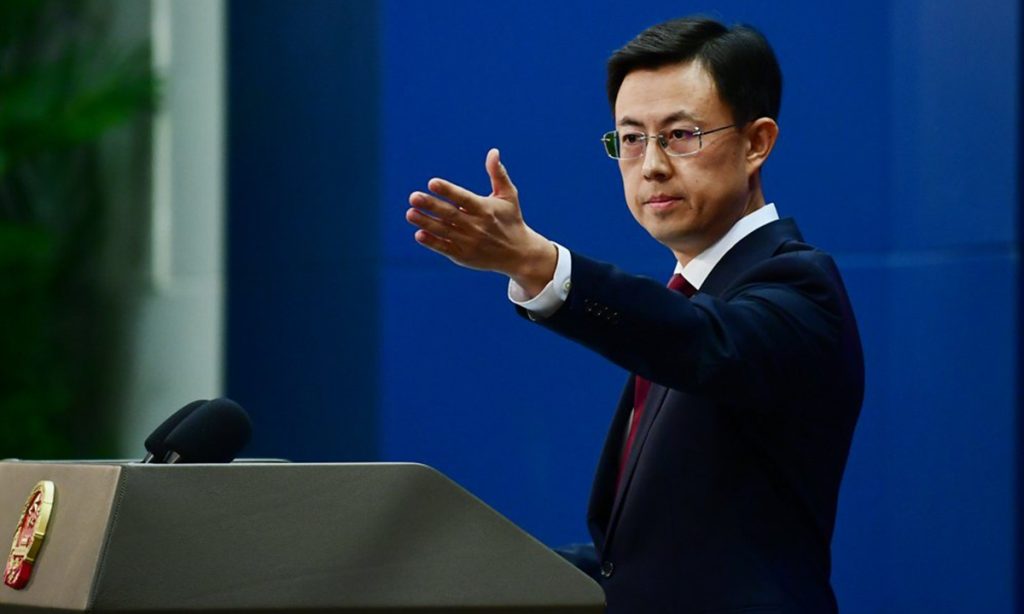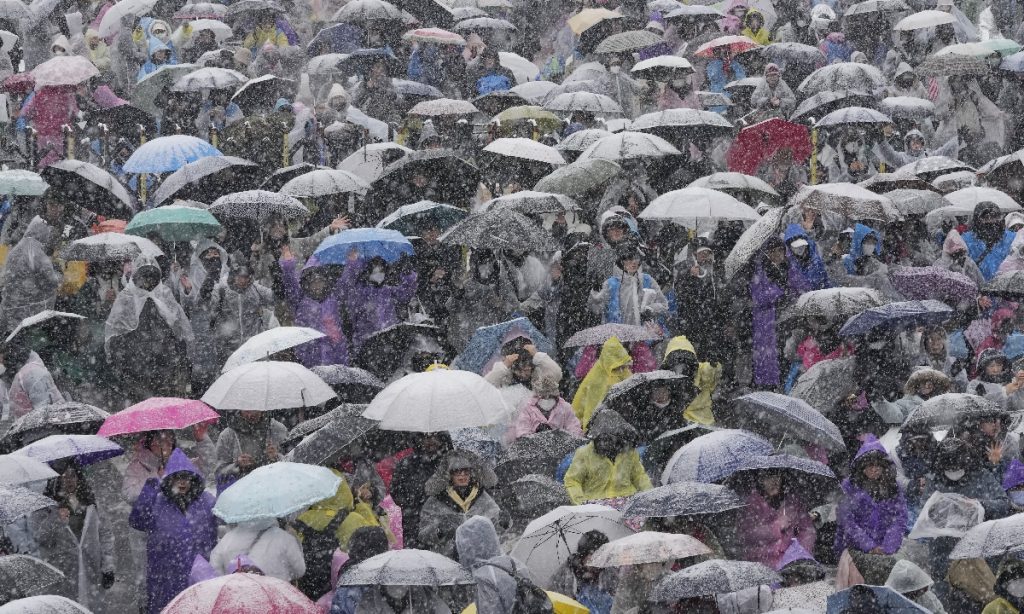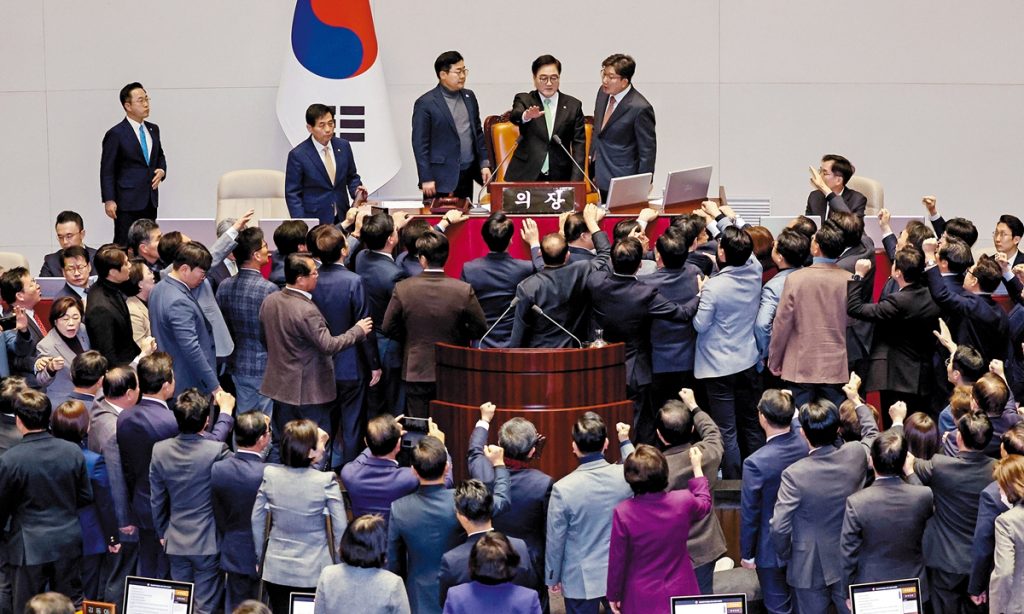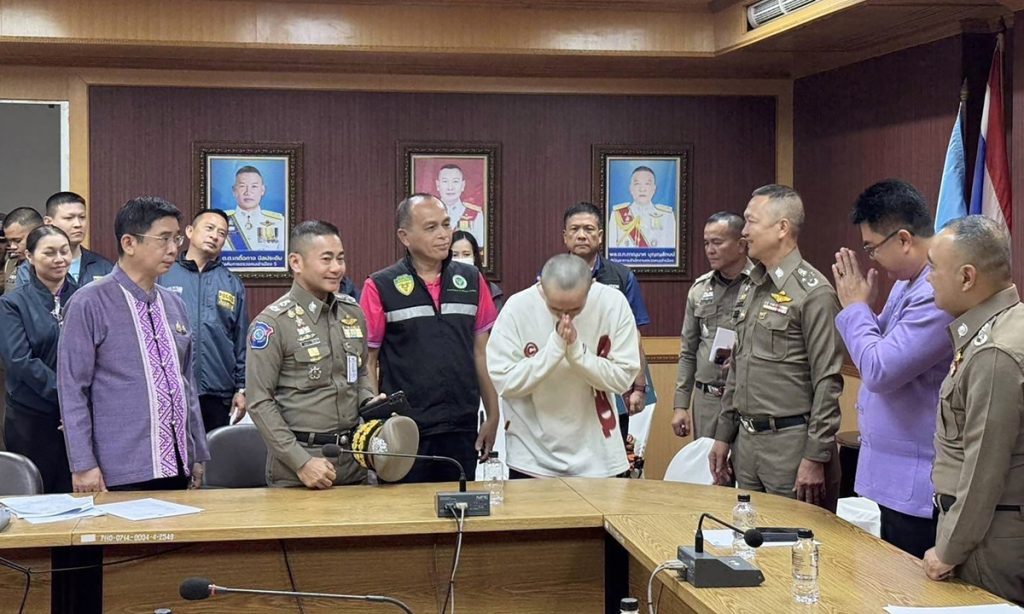Witness to history: Chinese in Canada for nearly 20 years recounts complexities of ‘Trudeau era’
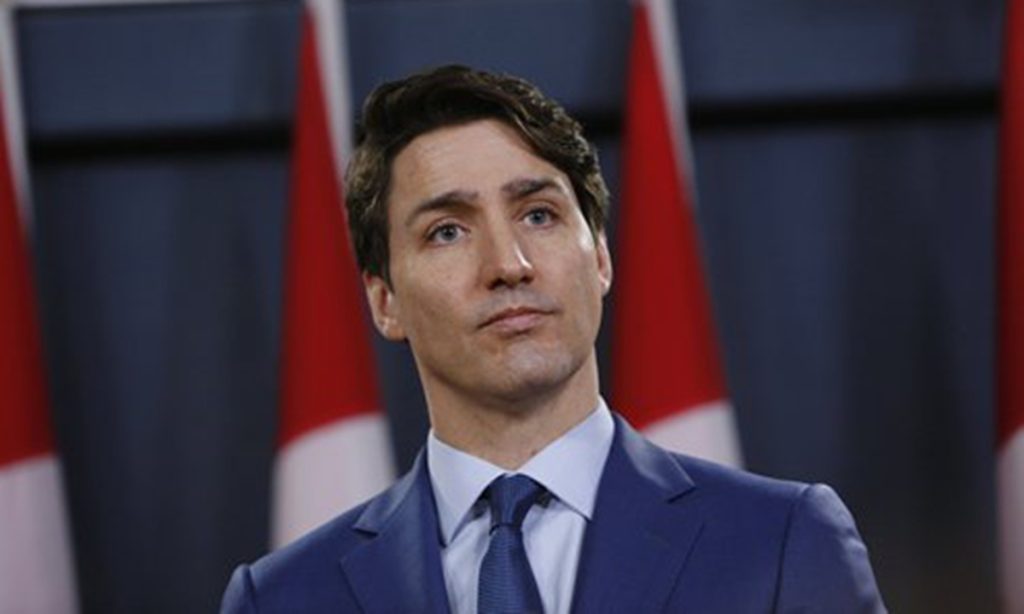
Editor's Note:
On January 6, Canadian Prime Minister and Liberal Party leader Justin Trudeau delivered a speech outside his residence in Ottawa, vowing to step down once his party picks a successor. On January 15, Trudeau told the media that he would not run in the upcoming federal election and would instead be "entirely focused on doing the job that Canadians elected me to do in an extraordinarily pivotal time right now." Theoretically, Trudeau is still the Prime Minister of Canada and the leader of the Liberal Party, but with domestic support plummeting to 16 percent and raising discontent over his leadership among high-ranking party officials, the Prime Minister, who has been in office for 9 years, has no choice but to "take a bow and exit" early. Media outlets are widely speculating that Canada is about to enter the "post-Trudeau era." In this issue, the Global Times invited commentator Tao Duanfang, who has lived in Canada for nearly 20 years, to opine on how Canada has changed under Trudeau's leadership and the profound impact it has had on Canadians' lives, as part of our "Witness to history" series.
Fresh blood of 'natural governing party'
In 2005, I obtained my immigration status. After a brief stay in Canada, I returned to Africa for work and officially settled in Canada a year later. My wife arrived in Canada a year earlier.
The immigration interview for my wife and me took place in October 2003 at the Consulate General of Canada in Hong Kong. The immigration officer asked me, "How much do you know about Canadian politics? How many major federal parties are there in Canada?" I had prepared in advance and answered correctly: the Liberal Party, the Conservative Party, the New Democratic Party, and the Bloc Québécois - a total of four (the Green Party did not have any seats in the House of Commons at that time).
The immigration officer expressed satisfaction and specifically praised me for placing the Liberal Party first, as it is the "natural governing party."
The Liberal Party first came to power in 1873, and it is the party with the longest cumulative time in power in Canadian history. It is known for its center to center-left political stance, an emphasis on business, and commitment to moderate welfare policies. The party once enjoyed widespread support among the middle class, business people, and small business owners. The characteristics of Chinese immigrants often align with those of small business owners and the middle class. Therefore, when I first settled here, among the Chinese community members who were politically engaged, most I knew tended to support the Liberal Party.
In fact, as of 2006, when I settled in Canada, the Liberal Party had been in power for 13 consecutive years. However, in that year, the Conservative Party, which had not been in power since 1993 and had even changed its name, defeated the Liberal Party and gained control of the government. The politically engaged older generation of immigrants said that the infighting and backstabbing among the prominent figures within the Liberal Party provided an opportunity for the well-organized Conservative Party to benefit. Subsequently, Conservative Prime Minister Stephen Harper remained in power for nine consecutive years.
The Harper era was a mix of hope and fear for the Chinese community in Canada. The positive aspect was that, although Harper and the Conservative Party came to power with an "anti-China" undertone, their policies toward China gradually became more pragmatic after taking office. During this period, Canada became a popular destination for Chinese citizens traveling abroad.
The Canadian government, at that time, also made a historic acknowledgment of the wrongs of the past, such as the "Chinese Exclusion Act" and the "Chinese head tax." Harper offered a full apology to Chinese Canadians. Furthermore, many government officials at that time often attended Chinese community-organized events.
Coupled with stable prices and a stable Canadian dollar exchange rate, my family (both of my children were born during this period) was quite satisfied with these developments.
Harper is a politician rooted in Alberta, a major oil and gas province and one of the "Prairie Provinces" (Manitoba, Saskatchewan, and Alberta), which primarily rely on oil, agriculture, and other primary resources. So his long-standing governance is also directly linked to a decline in Canada's high-tech industries, manufacturing, and commercial sectors.
It was during this delicate moment that Trudeau emerged. Since 2012, Canadians have frequently seen this young and handsome politician on their television screens, known for his eloquence and quick wit. Trudeau's entry into politics quickly brought an end to the internal strife within the Liberal Party.
In the 2015 Canadian federal election, Trudeau, participating as the party leader for the first time, led the Liberal Party to a resounding victory.
Baffling policies
In the early days of the Trudeau administration, my family, friends, and colleagues were filled with optimism. Trudeau's commitment to increasing child benefits significantly alleviated our financial burden. I had two school-aged children at the time.
However, based on my observations, the generous Canada Child Benefit (CCB) has led some families to prefer having more children to maximize their benefits rather than seeking low-wage employment.
Additionally, since Trudeau took office, he has been actively advocating for an increase in the minimum wage. Before his administration, the minimum wage in most provinces was around 8 Canadian dollars ($5.6) per hour, but after nine years in office, it has risen to approximately 15 Canadian dollars.
While many of my friends initially supported this policy, the reality has been challenging. Small businesses, already struggling, have found it difficult to absorb the significant wage increases. Many small business owners have had to resort to layoffs or rely on family members to provide "volunteer labor." Meanwhile, rising prices have exacerbated the financial strain on low- and middle-income earners, making their lives even more difficult.
In 2018, cannabis was officially legalized in Canada. Interestingly, recent public opinion polls showed that the majority of Canadians support this policy. In my opinion, there are two main reasons behind this: First, those in favor of cannabis legalization tend to form vocal groups, while opponents remain the "silent majority," and Trudeau chose to cater to the "loud voices"; second, Trudeau and his advisors explained that legalization allows for more effective regulation, leading many people to push for cannabis legalization, mistakenly thinking they were voting for "regulatory support."
After the policy was implemented, a cannabis store opened within a kilometer of my home. During weekend parties, a strong smell of cannabis often wafts from the house next door, rented by students, leaving neighbors powerless, whereas, before legalization, authorities could directly intervene.
In my view, the policies during Trudeau's era have made the originally center or center-left Liberal Party appear more "left-wing" and "progressive."
Some of his policies are baffling, such as the "gender diversity" policy, which mandates that public schools not restrict students from using changing rooms and bathrooms based on their self-identified gender. Some politicians voiced objections but were sidelined within the Liberal Party. In some cases, parents transferred their children to religious schools because "at least there, one can openly say that boys are boys and girls are girls."
Many people in Canada have expressed dissatisfaction with Trudeau's approach of initially "flooding the gates" with immigrants, refugees, and international students, only to later "shut the gates." They believe this approach has significantly changed Canada's social structure. The period before the pandemic saw a rise in anti-Chinese and anti-Vietnamese hostility incidents, and post-pandemic, Indians have become the new target of similar exclusionary sentiments.
Key issues
Some analysts, following Trudeau's resignation announcement, pointed out that although Trudeau had many "flaws," he always presented himself as a "fighter" and refused to step down until late December 2024. His eventual resignation was due to his failure to resolve the "interlinked issues of the economy, employment, and people's livelihoods."
In the case of McDonald's, for example, the price of the classic Big Mac meal was 7.99 Canadian dollars at the beginning of Trudeau's term, but now it has nearly doubled to 14.99 Canadian dollars. Last Sunday, when I went to a warehouse-style supermarket, I found that, compared to nine years ago, the only product that had not seen a significant price increase was bananas, which have remained at 0.69 Canadian dollars per pound (approximately 0.45 kilograms), while almost everything else had increased by 80 percent to over 100 percent. Similarly, the price of haircuts at a cheap community barbershop has gone from 7.99 Canadian dollars to 15.99 Canadian dollars per person.
A provincial election candidate friend of mine said that they now avoid Chinese community activities for fear of being misunderstood. A longtime friend of mine once ran for a provincial legislative seat and was labeled "red" by his opponents simply because he hailed from the Chinese mainland. It must be said that the era of Trudeau after 2019 has truly been difficult to describe for many Chinese Canadians.
For Chinese Canadians with relatives in China, the most frustrating "byproduct" of the Trudeau era may be the slow rebound of direct flights between Canada and China. I sincerely hope that the "post-Trudeau era" will lead to a "warming" of Canada's policy toward China, bringing the country back on track as it was when I first arrived. Hopefully, this is not mere wishful thinking.

